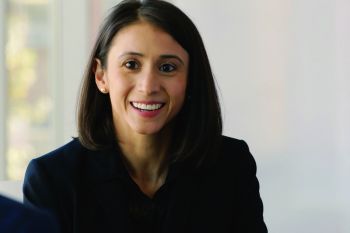News: 2020/06

Neuroscientist Adriana Galván Named Dean of Undergraduate Education
June 26, 2020Center board member Adriana Galván has been named UCLA's dean of undergraduate education. In addition to serving on the Center's Leadership Team and National Scientific Council, Professor Galván is a professor of psychology, holds the Wendell Jeffrey and Bernice Wenzel Term Chair in Behavioral Neuroscience, and is director of the Developmental Neuroscience Lab at UCLA. Congratulations, Adriana!
Press Releases
February 25, 2025: Announcing the UCLA Center for the Developing Adolescent’s 2024 Annual Report
January 17, 2023: New Guides Help Organizations Build Effective Youth Engagement Programs
August 16, 2021: New Report Examines Intersection of Anti-Black Racism on Youth Development
November 30, 2020: Center for the Developing Adolescent Announces New Advisory Board Members
October 1, 2020: Center for the Developing Adolescent Announces New Leadership
Stay in the Know
What Happens When Kids Don’t See Their Peers for Months
June 24, 2020"[Adolescents] have a natural affinity for learning about not just their peers and those strong friendships, but about ‘me’ in relationship to others,” says Dr. Ron Dahl, the Center's Founding Director, in this article for The Atlantic about what it means for young people to miss their friends for so long.
Coronaprofile: Quaran-teens? How are young people coping with the pandemic?
June 23, 2020"[Young people] need to have their own role in this brave new world and feel that they can contribute to the larger goals of society," says neuroscientist Dr. Eveline Crone, in this interview about her ongoing research about the effects of coronavirus lockdowns on the developing adolescent brain.
Mobile Technology May Support Kids Learning to Recognize emotions in Photos of Faces
June 2, 2020The increase in screen-time to connect with grandparents, teachers, and friends during the COVID pandemic has fed existing concerns that all this virtual interaction could be impeding social learning. In this article for The Conversation, Dr. Yalda Uhls, founder of the Center for Scholars and Storytellers, talks about her recent study in which kids who grew up with tablets and smartphones were actually better at reading emotions in photographs.
